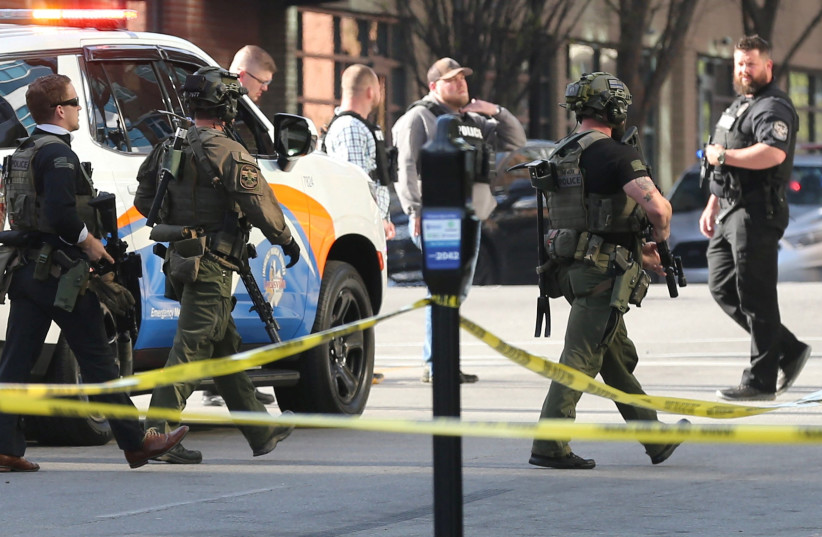A small segment of the American population considers violence – including violence that can kill someone – to be usually or always justified to advance political objectives. New research from the University of California, Davis's Violence Prevention Research Program (VPRP) provides a complex portrait of the attitudes and concerns about the state of American democracy and highlights the underlying beliefs that could predict the potential for violence.
The study was published in the journal Injury Epidemiology under the title “Views of democracy and society and support for political violence in the USA: findings from a nationally representative survey.”
“This study was motivated by the possibility of violence that could put at risk the future of the US as a free and democratic society,” said Dr. Garen Wintemute, the first author of the study, an emergency department physician and director of VPRP and the California Firearm Violence Research Center. He is a renowned expert on the public health crisis of gun violence and a pioneer in the field of injury epidemiology and prevention of firearm violence, which results in about 30,000 deaths a year and approximately 75,000 nonfatal injuries seen in hospital emergency departments in the US.
The researchers conducted the nationwide online survey in the middle of 2022. The sample included 8,620 respondents representing the general adult population in the US.
The results show a mixture of concern for the state of the country and support for violence to advance political objectives. Recent events in the US – mass shootings, violence and threats of violence against elected and other government officials, the January 2021 assault on the Capitol, and others – have reminded Americans of the presence of violence in their nation’s public and political life.

Given the fact that Israel has for the last nine months been tormented and divided over issues of democracy and dictatorship, it’s worthwhile for this country’s leaders to pay attention to the study.
Most Americans think US headed in the wrong direction
Almost 90% of the participants felt it was extremely or very important for the US to remain a democracy. A little more than two-thirds perceived that there is a serious threat to American democracy. When asked if “American democracy only serves the interest of the wealthy and powerful,” 36% of the participants agreed strongly or very strongly. Fully 82% of the survey participants said they felt the country was generally headed in the wrong direction.
One in 10 respondents agreed strongly or very strongly that US institutions are “controlled by a group of Satan-worshipping pedophiles who run a global child sex trafficking operation.” One in 10 also agreed strongly or very strongly that “a storm coming soon” will “sweep away the elites in power and restore the rightful leaders.” And almost 20% agreed strongly or very strongly that “we are living in what the Bible calls ‘the end times.’ ”
The survey also gauged the participants’ willingness to engage in violence, including political violence, under specific conditions. The respondents were asked, “What do you think about the use of force or violence in the following situations?” with response options being always, usually, sometimes, or never justified. “Force or violence” was defined as “physical force strong enough that it could cause pain or injury to a person.”
The respondents’ views varied substantially with the proposed circumstances. Large majorities of respondents saw violence as usually or always justified in self-defense or to prevent assaultive injury to others. But in contrast, 86% felt that violence was never justified to win an argument, respond to an insult, or get respect. Only three percent thought political violence in general is usually or always justified.
The researchers found that the support for political violence and the use of firearms in such violence declined with increasing age, education and income.
A third said that it was usually or always justified to advance at least one of 17 specific political objectives, such as preventing discrimination based on race or ethnicity, stopping an election from being stolen, stopping illegal immigration, or preserving an American way of life based on Western European traditions. Fully 18.9% agreed strongly or very strongly that “having a strong leader for America is more important than having a democracy.” Over 16% agreed strongly or very strongly that “in America, native-born white people are being replaced by immigrants.” Nearly 14% agreed strongly or very strongly that “in the next few years, there will be civil war in the US.” Nearly eight percent thought it very or extremely likely that within the next few years, in a situation where they believe political violence is justified, “I will be armed with a gun.”
The researchers noted that a large majority of respondents rejected political violence altogether. Most respondents who endorsed political violence were unwilling to resort to violence themselves. The researchers said the challenge now for those majorities is to recognize the threat posed by those who are willing to engage in political violence and respond appropriately.
